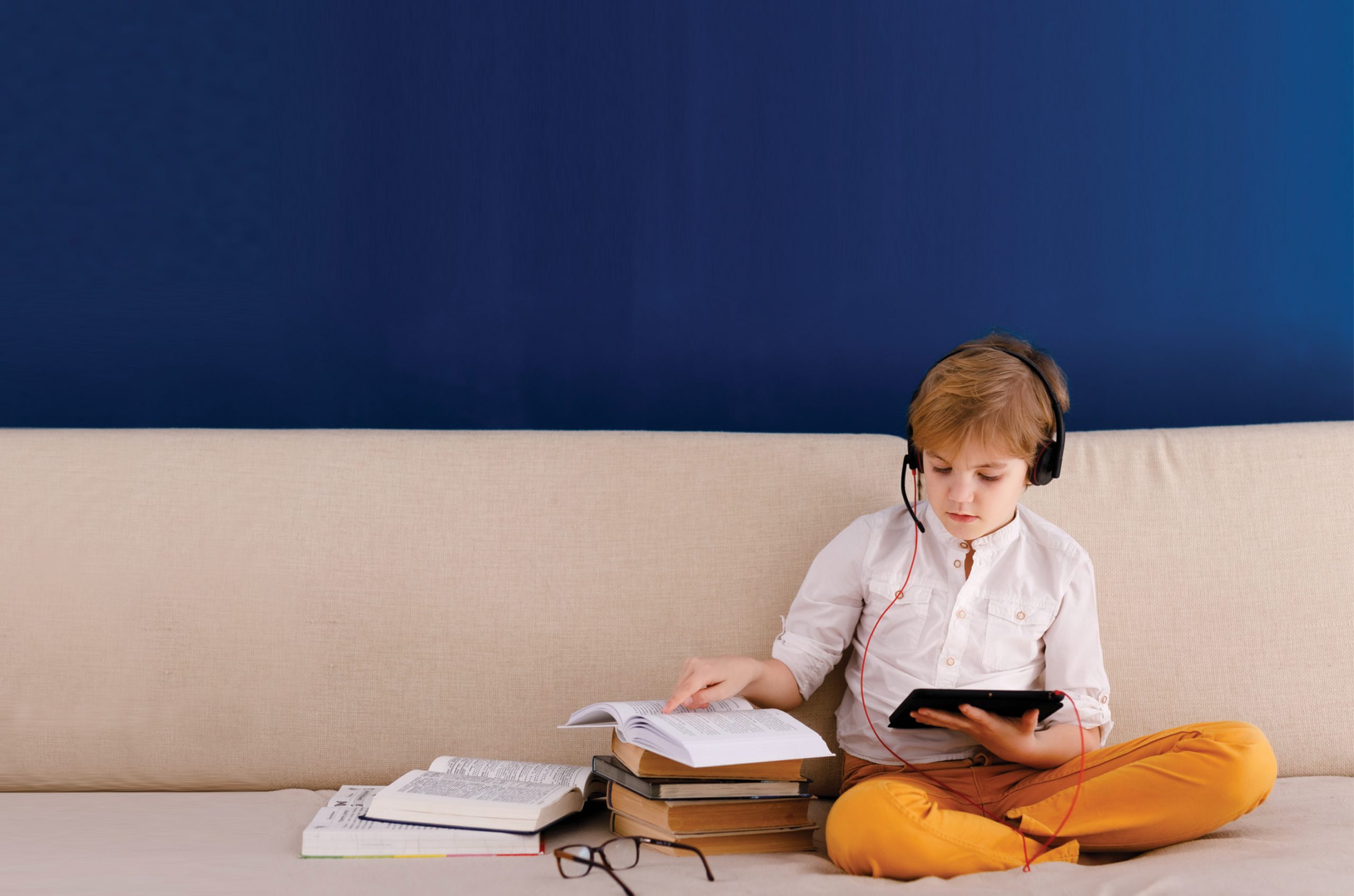Whether your kids are returning to a school campus or continuing to learn at home this fall, it’s safe to say that the upcoming term will be an unusual one. Just a year ago, parents and teachers couldn’t have foreseen how COVID-19 would alter the educational landscape. While some students have adjusted to the change, others may be feeling unnerved and in need of additional help
taming the unknown
Uncertainty can take a toll on kids of all ages, from preschool to high school and beyond, says Molly Shaffer, a licensed professional counselor at mental health nonprofit Great Circle. “Whether students stay at home or go back to campus, the main issue parents should look for is anxiety caused by a change in their routine. Even a small amount can lead to bigger obstacles. Sleep disturbances, attention problems, combativeness, overreacting to small issues, mood swings, blowups between siblings and similar behaviors can be mistaken for depression or aggressive disorders, but sometimes, they are just caused by anxiety.”
Licensed professional counselor Kristen Craren of Archway Therapy says kids’ feelings of instability are compounded when schools have to delay decisions about reopening. “Kids are left wondering if they will or won’t be at school, or if they will only be there part-time, and that can be disconcerting,” she notes. Personality differences feed into the confusion as well. “Introverted students may have been thriving in a stay-at-home environment, but extroverts likely are chomping at the bit to be on campus with their friends,” Craren says. “If kids do return to school, it’s important to give them some sense of control over the situation by explaining how face masks, handwashing and social distancing help prevent infection.”
hitting home
Some children experience anxiety directly related to the illness itself, according to Craren. “They may have experienced symptoms, or they may have seen a relative or friend become sick or die from COVID-19,” she says. “That’s a tough situation, because it threatens their basic need to feel safe. Parents should mitigate their own feelings to keep the home environment calm. Adults can regulate their emotions and do things to help themselves feel better, but kids’ thought processes are more black-and-white. If they pick up on their parents’ distress, they will internalize it quickly, and that can lead to anxiety.”
Shaffer notes that honesty and a sense of balance are key. “Try to shield young children from TV and internet overload about the virus, but don’t attempt to hide the truth from them,” she says. “Get accurate information from medical and mental health professionals, and describe the situation in words that kids can understand. Find out what their questions are: Why do we have to stand six feet apart? What happens to the virus when you wash with soap? How does a face mask protect other people?”
keeping the lines open
Shaffer also advises talking to kids about why change is a constant in our world. “Explain that some parts of the situation are out of our control, but there are things we can do to help,” Shaffer says. “Kids will be more likely to follow a guideline if they understand how it protects them.”
According to Craren, studies on children’s resilience during the pandemic are showing promising results. Parents are talking with their kids about positive coping practices, and the message seems to be getting through. To keep that trend going in the right direction, she advises consulting a mental health professional, especially if your child feels stressed or asks for help.
“Parents may not be aware that the mental health field includes different specialties to address specific concerns,” she says. “Look for a professional who specializes in family or child therapy. Interview the provider and ask about his or her background. Two or three good, constructive appointments may be just what your family requires; it also may be helpful for parents to attend sessions alone. Once kids are aware that their concerns about school are being heard and validated, it’s amazing how quickly the situation can improve.”
talk it out: tips to keep in mind
returning to school
- Let kids know it’s natural and understandable to feel anxious.
- Reassure them that school staff is taking measures to keep germs under control.
- Have young children make up their own 20-second song to sing while washing their hands.
- Let them decorate a face mask to take to school.
- Show them how to cough or sneeze into an elbow.
- Remind them to tell an adult right away if they don’t feel well.
staying home this fall
- Let kids take part in mapping out a daily schedule and checking off accomplishments.
- Allow them to help make breakfast or lunch.
- Schedule 20-minute breaks in their learning, like a quick video, alphabet scavenger hunt or fun outdoor activity.
- Encourage them to express their feelings by keeping a journal, painting, coloring or doing crafts.








